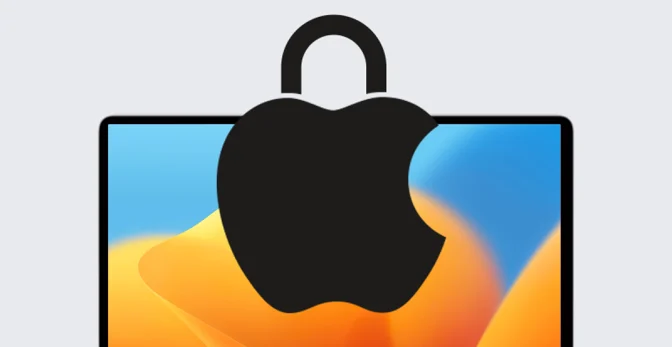A firewall is a crucial security tool for your Mac, helping to protect it from online threats while enhancing your privacy by monitoring incoming and outgoing internet traffic.
This data exchange is sometimes necessary, like during software updates for your Mac. However, it can also be exploited by malicious applications that may transmit your personal information to remote servers. By using a firewall, you can prevent this from occurring.
What is a firewall?
A firewall is a tool that monitors the network traffic sent to and from your computer, acting as a gate between your device and the internet. Without a firewall, all applications can access the internet freely. However, with a firewall in place, applications must request your permission before they can send or receive data.
ALSO READ: As AI growth surges, is SaaS destined for a downturn?
Firewalls can be either hardware devices or software applications. Most people have encountered hardware firewalls, as modern routers typically come with built-in firewall capabilities. By default, these routers can block incoming connections, and some higher-end models also allow you to block outgoing connections.
Hardware firewalls provide protection for all devices on your network and are less susceptible to being disabled by malware on a single computer, unlike software firewalls. In contrast, a software firewall acts as a gatekeeper between your computer and the internet, making it more effective for managing connections on an individual app basis.
Should I utilize a software firewall?
While software firewalls offer excellent privacy and security, they may not suit everyone. I believe everyone should use a firewall, but some individuals might find them somewhat restrictive since you need to approve each incoming and outgoing connection. However, you can establish rules to prevent the firewall from becoming a hindrance.
How does a firewall function?
By default, your Mac allows all network traffic to access your computer and permits most apps to send data out. When you enable a robust firewall, you must approve nearly every request for both incoming and outgoing traffic. This includes app checks for software updates, downloads, uploads, and any other internet-related connections.
Firewalls also have a stealth mode that operates according to your predefined settings without requiring prompts. However, this mode can still feel restrictive, limiting your freedom to use the internet as you wish. On the positive side, this increased control offers greater protection against cybersecurity threats and keeps you well-informed about every connection your Mac makes online.
How does a firewall work?
By default, your Mac permits all network traffic to access your computer and allows most apps to send data out freely. However, when you activate a strong firewall, you will need to approve nearly every request for both incoming and outgoing traffic. This includes app updates, downloads, data uploads, and virtually any action that requires an internet connection.
Firewalls also offer a stealth mode that operates according to your predefined settings without prompting you for approval. While this mode is less intrusive, it can still limit your internet usage. On the upside, it enhances your protection against cybersecurity threats and keeps you informed about every connection your Mac makes to the internet.
Which firewall applications should I consider using?
Fortunately, there are several excellent third-party firewall applications for Mac. My favorite is Little Snitch, which offers a robust set of features, including the ability to monitor and block all types of traffic on your Mac, automatically maintained blocklists to keep trackers at bay, and a user-friendly interface that presents useful information clearly. However, it comes with a price tag of $59, which might not suit everyone’s budget.
You can also consider a more affordable option like Radio Silence, which has been recommended by Lifehacker. While it may not have the sleek interface and extensive features of Little Snitch, it effectively fulfills a firewall’s primary function: preventing apps from connecting to the internet without your permission. Priced at $9, it’s an excellent choice for those seeking a budget-friendly firewall.
Additionally, there’s a completely free firewall app for Mac called LuLu. Although I’m usually cautious about recommending free applications for critical security tasks, LuLu has gained the community’s trust. It’s free and open source, and you can explore its GitHub page for more information. As of now, it’s actively developed, which is a plus since many similar apps can be abandoned. The interface may not be as refined as the paid options, but it performs well and can help you determine if a firewall app suits your needs.


